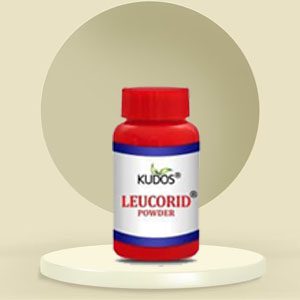Say Goodbye To Leucorrhea: How To Find The Best Medicine For White Discharge
Leucorrhea, also known as white discharge, is a common condition experienced by many women. It refers to the abnormal vaginal discharge that appears white or milky in color and may have a thick or thin consistency. This discharge is a natural occurrence and is typically produced by the cervix and vaginal walls to maintain vaginal health.
Leucorrhea, although usually harmless, can have an impact on women’s health and quality of life. Here are some ways in which it can affect women:
- Psychological Impact: Experiencing excessive leucorrhea can lead to feelings of embarrassment, self-consciousness, and lowered self-esteem. Women may feel uncomfortable or anxious about the odor or wetness caused by the discharge, which can affect their confidence and overall well-being.
- Physical Discomfort: In some cases, leucorrhea may cause physical discomfort such as itching, irritation, or a sense of vaginal heaviness. These symptoms can be bothersome and interfere with daily activities, causing discomfort and reducing overall quality of life.
- Disruption of Sexual Life: Excessive leucorrhea may disrupt a woman’s sexual life. The discomfort and concerns associated with the discharge can lead to decreased sexual desire, pain during intercourse, or an overall decrease in sexual satisfaction.
- Indication of Underlying Conditions: While leucorrhea is often a normal physiological process, it can also be an indication of an underlying condition such as a vaginal infection or hormonal imbalance. If the discharge is accompanied by symptoms like itching, foul odor, or changes in color, it is essential to consult a healthcare professional for proper diagnosis and treatment.
- Impact on Daily Activities: Excessive leucorrhea may necessitate the use of panty liners or frequent changes of underwear, leading to inconvenience and increased expenses. Women may need to adapt their daily routines to manage the discharge effectively, which can be time-consuming and disruptive.
Leucorrhea

Causes and Common Triggers of Leucorrhea
Leucorrhea, or white discharge, can be caused by various factors and triggers. Here are some common causes:
- Hormonal Changes: Hormonal fluctuations during different phases of the menstrual cycle, pregnancy, or menopause can lead to changes in vaginal discharge. Increased estrogen levels can result in a higher production of discharge.
- Infections: Vaginal infections, such as yeast infections (Candida) or bacterial vaginosis, can cause abnormal discharge. These infections are often accompanied by symptoms like itching, redness, and an unpleasant odor.
- Sexual Excitement: Sexual arousal can stimulate the production of vaginal discharge. This discharge is usually clear or white and helps lubricate the vagina during sexual activity.
- Poor Hygiene: Inadequate hygiene practices, such as infrequent bathing or improper wiping, can lead to an accumulation of bacteria and increased discharge.
- Use of Certain Medications: Some medications, such as antibiotics or hormonal contraceptives, can disrupt the natural balance of vaginal flora, leading to changes in discharge.
Differentiating Between Normal and Abnormal White Discharge
It is essential to differentiate between normal and abnormal white discharge to understand when medical attention may be necessary. Here are some factors to consider:
- Consistency and Texture: Normal white discharge is usually milky or clear and may have a slightly sticky or slippery texture. It should not have a strong odor or cause discomfort. If the discharge becomes clumpy, frothy, or accompanied by itching, it may indicate an underlying issue.
- Color: Normal white discharge is typically clear or white. If the discharge changes color to yellow, green, or gray, it may be a sign of infection and requires medical attention.
- Odor: Normal vaginal discharge may have a mild, slightly musky odor. However, if the discharge has a strong, foul, or fishy odor, it could be a sign of an infection or other underlying condition.
- Associated Symptoms: Normal discharge is usually not accompanied by itching, redness, pain, or discomfort. If these symptoms are present, it may indicate an infection or other issues that need evaluation by a healthcare professional.
Importance Of Proper Diagnosis
The Role of Healthcare Professionals in Diagnosing Leucorrhea
When it comes to diagnosing leucorrhea, healthcare professionals play a vital role in ensuring an accurate assessment and determining the underlying causes. Here’s why their expertise is important:
- Medical Knowledge and Experience: Healthcare professionals, such as gynecologists or primary care physicians, have in-depth knowledge and training in women’s health. They possess the expertise to differentiate between normal and abnormal vaginal discharge, as well as identify potential causes and associated symptoms.
- Comprehensive Evaluation: Healthcare professionals conduct a thorough evaluation of your medical history, including any previous gynecological conditions or infections. They also perform a physical examination to assess the characteristics of the discharge and examine the vaginal area for any signs of infection or inflammation.
- Individualized Approach: Each woman’s body is unique, and the causes of leucorrhea can vary. Healthcare professionals take into account your specific circumstances, such as age, reproductive history, sexual activity, and symptoms, to tailor their diagnostic approach and provide personalized care.
The Importance of Accurate Diagnosis in Determining the Appropriate Treatment
Accurate diagnosis of leucorrhea is essential for determining the appropriate treatment approach. Here’s why an accurate diagnosis is crucial:
- Targeted Treatment: Different causes of leucorrhea require specific treatment approaches. For example, if the discharge is due to a yeast infection, antifungal medications will be prescribed, while bacterial infections may require antibiotics. An accurate diagnosis ensures that the treatment targets the specific underlying cause, increasing the chances of successful resolution.
- Prevention of Recurrence: Treating the underlying cause of leucorrhea not only alleviates current symptoms but also helps prevent future recurrences. By addressing the root cause, healthcare professionals can provide guidance on preventive measures and lifestyle modifications to maintain vaginal health.
- Avoiding Inappropriate or Unnecessary Treatments: Self-diagnosis and self-medication can lead to inappropriate or ineffective treatments. Consulting a healthcare professional ensures that you receive the appropriate treatment, avoiding potential complications or the worsening of symptoms.
- Patient Education and Counseling: An accurate diagnosis allows healthcare professionals to educate patients about their condition, providing essential information on hygiene practices, sexual health, and preventive measures. Patient counseling empowers individuals to make informed decisions and actively participate in their own care.
Herbal Remedies For Leucorrhea
Traditional medicine for white discharge has long relied on the use of herbs for treating various health conditions, including leucorrhea. Here are some common herbs that have been traditionally used for managing leucorrhea:
- Neem (Azadirachta indica): Neem has antimicrobial and anti-inflammatory properties, making it beneficial for treating infections and reducing vaginal discharge.
- Amla (Emblica officinalis): Amla is rich in vitamin C and antioxidants, which help boost the immune system and support overall vaginal health.
- Lodhra (Symplocos racemosa): Lodhra has astringent properties that help tighten the vaginal tissues and reduce excessive discharge.
- Ashoka (Saraca asoca): Ashoka is known for its anti-inflammatory and uterine tonic properties. It helps regulate hormonal imbalances and reduce abnormal vaginal discharge.
- Shatavari (Asparagus racemosus): Shatavari is a renowned herb in Ayurveda known for its rejuvenating and hormone-balancing properties. It can be beneficial for managing leucorrhea caused by hormonal imbalances.
Benefits and Effectiveness of Herbal Remedies
Herbal remedies for leucorrhea offer several potential benefits:
- Antimicrobial and Antifungal Properties: Many herbs used for leucorrhea have natural antimicrobial and antifungal properties. They can help combat the underlying infections that may be causing the excessive discharge.
- Soothing and Anti-inflammatory Effects: Some herbs possess soothing and anti-inflammatory properties that can help reduce inflammation, itching, and irritation associated with leucorrhea.
- Hormone Balancing: Certain herbs have hormone-balancing effects, which can be beneficial for managing leucorrhea caused by hormonal imbalances. They help regulate the production of estrogen and progesterone, promoting a healthy vaginal environment.
- Overall Vaginal Health: Herbal remedies often support overall vaginal health by improving immune function, reducing oxidative stress, and enhancing the natural defenses of the vaginal flora.
Precautions and Potential Interactions with Other Medications
When considering herbal remedies for leucorrhea, it is essential to exercise caution and be aware of potential precautions and interactions:
- Allergies and Sensitivities: Some people could be allergic to or sensitive to particular plants. It is important to perform a patch test or consult a healthcare professional to ensure there are no adverse reactions.
- Drug Interactions: Herbal remedies may interact with certain medications, including hormonal therapies or immunosuppressants. It is crucial to inform your healthcare provider about any herbal remedies you are using to prevent potential interactions.
- Dosage and Quality: Herbal remedies should be used in appropriate dosages and obtained from reputable sources to ensure their safety and efficacy.
- Consultation with a Healthcare Professional: It is advisable to consult a healthcare professional, such as an herbalist or naturopathic doctor, who can provide guidance on the appropriate herbs, dosage, and potential interactions based on your individual health profile.
Homeopathic Approaches To Treating Leucorrhea
Principles of Homeopathy and Its Application in Treating Leucorrhea
Homeopathy is a holistic system of medicine that follows the principle of “like cures like” and aims to stimulate the body’s innate healing abilities. It focuses on treating the individual as a whole, taking into consideration their unique symptoms, physical and emotional characteristics, and overall health. In the case of leucorrhea, homeopathy seeks to address the underlying imbalances that contribute to the condition. By stimulating the body’s vital force, homeopathic remedies aim to restore balance and promote healing.
Common Homeopathic Remedies for Leucorrhea and Their Indications
Several homeopathic remedies may be used in the treatment of leucorrhea, depending on the individual’s symptoms and underlying causes. Here are a few commonly used remedies and their indications:
- Sepia: Sepia is often indicated for leucorrhea with a yellowish or greenish discharge. It may be accompanied by weakness, irritability, and a sensation of dragging or heaviness in the pelvic region.
- Calcarea carbonica: This remedy is suitable for leucorrhea in women who are overweight, have a tendency to perspire excessively, and experience fatigue. The discharge may be milky or white and may have a sour or offensive odor.
- Pulsatilla: Pulsatilla is indicated when the leucorrhea is bland, creamy, or yellowish, with a changeable consistency. It is often associated with a lack of thirst, mild temperament, and emotional sensitivity.
- Kreosotum: Kreosotum is used when the leucorrhea is acrid, corrosive, and offensive in odor. It may cause intense itching and burning, and the discharge may be yellow or green.
- Hydrastis: Hydrastis is recommended for leucorrhea with a thick, yellow, or golden discharge. The discharge may be stringy and may cause weakness or fatigue.
Lifestyle And Self-care Practices For Managing Leucorrhea
Hygiene Practices to Maintain Vaginal Health
Maintaining proper hygiene is essential for managing leucorrhea and promoting vaginal health. Here are some hygiene practices to consider:
- Gentle Cleansing: Use mild, unscented soap or a specifically formulated intimate wash to clean the vaginal area. Avoid using harsh soaps or douches, as they can disrupt the natural pH balance and irritate the delicate tissues.
- Proper Wiping Technique: When using the toilet, always wipe from front to back to prevent the spread of bacteria from the anal area to the vagina.
- Wear Breathable Fabrics: Choose breathable, cotton underwear that allows proper airflow and minimizes moisture buildup. Avoid tight-fitting clothes, as they can trap heat and moisture, leading to increased vaginal discharge.
- Change Wet Clothes Promptly: After swimming or exercising, change out of wet clothes and bathing suits as soon as possible to prevent moisture buildup, which can contribute to the growth of bacteria or yeast.
- Practice Safe Intercourse: If engaging in sexual activity, use condoms to protect against sexually transmitted infections. Additionally, maintaining good hygiene before and after intercourse can help prevent infections and reduce the risk of exacerbating leucorrhea.
Dietary and Lifestyle Modifications to Support the Treatment of Leucorrhea
In addition to proper hygiene, making certain dietary and lifestyle modifications can support the treatment of leucorrhea. Consider the following:
- Balanced Diet: Consume a diet high in fruits, vegetables, whole grains, and lean proteins to stay healthy. A well-balanced diet provides essential nutrients to support overall immune function and vaginal health.
- Probiotics: Include probiotic-rich foods, such as yogurt, kefir, and sauerkraut, in your diet. Probiotics promote a healthy balance of bacteria in the vagina and may help reduce the risk of vaginal infections.
- Hydration: Drink an adequate amount of water throughout the day to stay hydrated. Sufficient hydration helps maintain vaginal moisture balance and supports overall well-being.
- Avoid Irritants: Reduce or avoid the use of products that may irritate the vaginal area, such as scented feminine hygiene products, harsh detergents, or perfumed toilet paper. These can disrupt the natural pH balance and cause irritation or increased discharge.
- Stress Management: Chronic stress can affect immune function and hormonal balance, potentially contributing to leucorrhea. Incorporate stress-management techniques such as exercise, meditation, deep breathing, or engaging in hobbies to promote overall well-being.
Conclusion
In conclusion, managing leucorrhea requires a comprehensive approach that combines appropriate medicine for white discharge and self-care practices. It is essential to seek proper medical diagnosis and treatment to address the underlying causes of leucorrhea. Healthcare professionals play a vital role in guiding patients through diagnostic tests, identifying triggers, and prescribing effective medications or therapies.
Additionally, incorporating self-care practices is crucial for maintaining vaginal health and managing leucorrhea. Practicing good hygiene, making dietary and lifestyle modifications, and managing stress levels can significantly contribute to the overall well-being and reduction of symptoms.
By following these approaches, individuals can potentially overcome the challenges posed by leucorrhea. It is important to remember that each person’s experience may vary, and consulting a healthcare professional is necessary for accurate diagnosis and personalized treatment plans.
Recommended Medicine For White Discharge
Discover natural remedies to address white discharge concerns. Restore balance and promote feminine well-being with Ayurvedic formulations.




